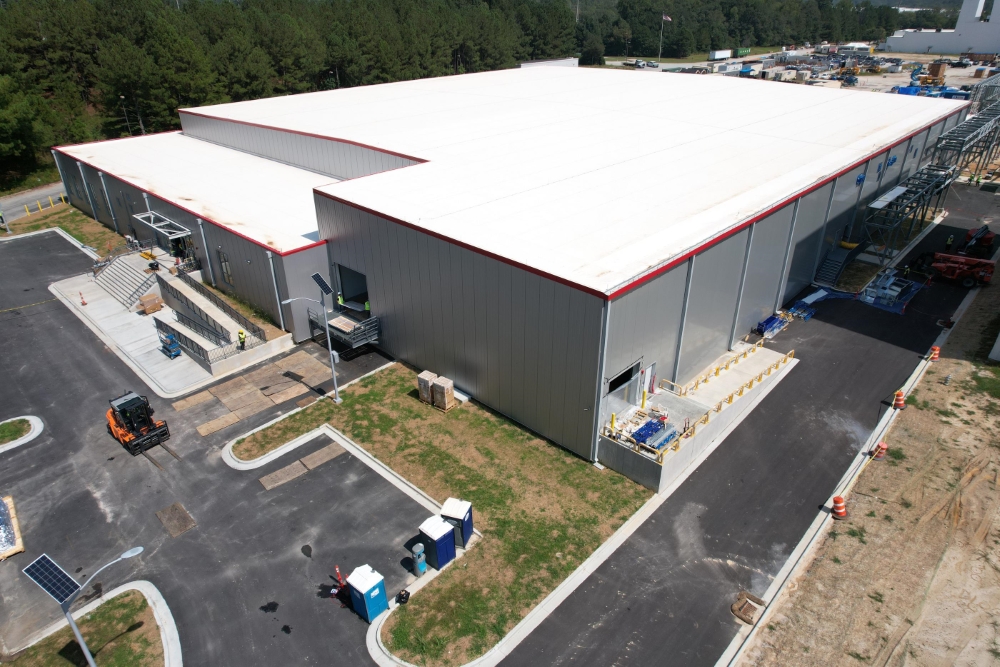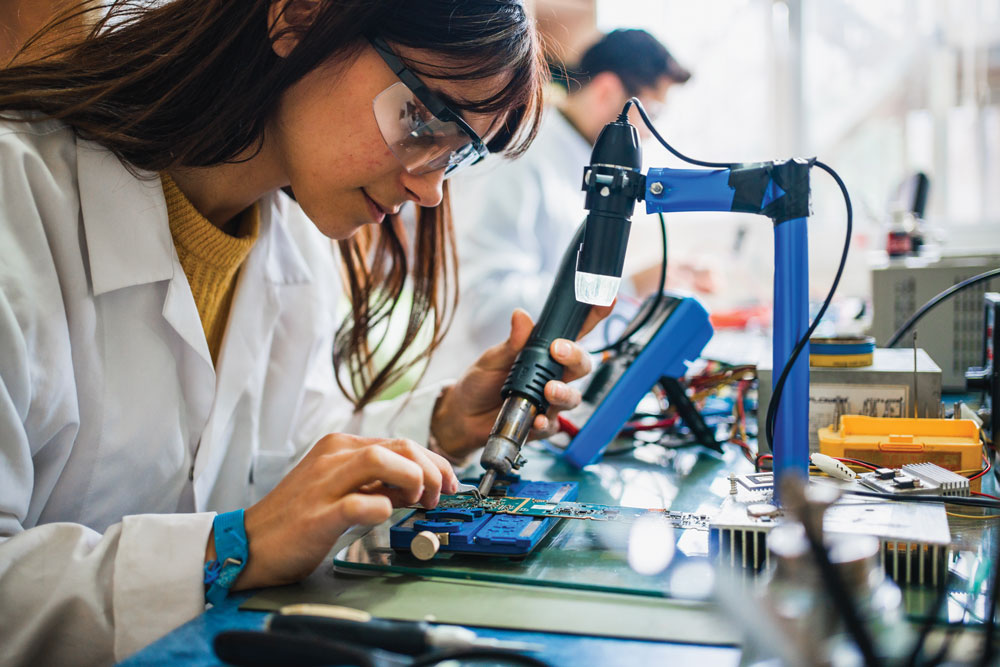Dozens of semiconductor manufacturers have benefited from the Advanced Manufacturing Investment Credit, part of the CHIPS Act of 2022 administered by the U.S. Department of Commerce. But there’s more to the semiconductor ecosystem than fabrication and component-producing facilities. Other beneficiaries of the incentive — a 25% tax credit for qualifying advanced manufacturing facilities — include companies specializing in R&D, packaging, chip design, equipment and advanced materials.
Since 2020, according to the Semiconductor Industry Association (SIA), more than 130 projects in 28 states have been announced, representing a combined capital investment of more than $600 billion. Forty-one of those are dedicated to advanced materials. As of July, notes SIA, the Department of Commerce has awarded more than $32 billion in CHIPs Act incentives and nearly $6 billion in loans to 32 companies across 48 projects. These project awards are subject to preliminary memoranda of terms (PMTs) — non-binding agreements between companies and the Department of Commerce, pending due diligence.
The Department of Commerce signed several PMTs with advanced materials companies in early 2025, bringing their facility expansion plans closer to becoming reality. One is a proposed investment of up to $79 million to support the expansion of a Coherent Corporation manufacturing facility in Easton, Pennsylvania, that would facilitate an increase in production capacity of 150-mm and 200-mm silicon carbide (SiC) substrates. It also would support the expansion of the facility’s SiC epitaxial wafer manufacturing capacity.
Restoring U.S. Leadership
Another would provide Absolics, an affiliate of Korea-based SKC, with up to $75 million to support the construction of a 120,000-sq.-ft. facility in Covington, Georgia, and the development of substrates technology for use in semiconductor advanced packaging. The proposed investment at the time of the company’s original groundbreaking in November 2022 was the first proposed CHIPS investment in a commercial facility supporting the semiconductor supply chain by manufacturing a new advanced material. A separate influx of $100 million was announced in January by the Commerce Department as part of the CHIPS National Advanced Packaging Manufacturing Program (NAPMP).
Absolics glass substrates are intended to be used as an important advanced packaging technology to increase the performance of leading-edge chips for AI, high-performance computing and data centers by reducing power consumption and system complexity, according to a May 2024 Commerce Department release. The advanced packaging substrates market is concentrated in Asia. The proposed CHIPS investment would afford U.S. companies an expanded domestic supply of glass substrates for advanced packaging.

Absolics, a producer of glass substrates for advanced semiconductor chip packaging, is building a facility in Covington, Georgia.
Photo courtesy of Absolics
“With the support of this proposed CHIPS funding, Absolics would be able to fully commercialize our pioneering glass substrate technology for use in high-performance computing and cutting-edge defense applications,” said Absolics CEO Jun Rok Oh in the release. “This effort is an important component of establishing a robust semiconductor advanced packaging ecosystem in the State of Georgia and restoring the U.S.’s leadership in semiconductor industry.”
Texas, Too
In March, a Texas Semiconductor Innovation Fund grant of $7.87 million was extended to DSM Semichem LLC (DSM) for an expansion of its specialty materials and chemicals facility in Plainview. This expansion brings DSM’s total capital investment in the facility to $176 million and creates 40 new jobs, according to a statement from Governor Greg Abbott’s office. The Fund was established as part of the Texas CHIPS Act signed into law by the governor in 2023.
“Texas is making strategic investments to ensure the stability of critical domestic supply chains for the technologies that fuel our economy,” said the governor. “This $176 million total capital investment by DSM to construct and expand its facility in Plainview will double their production volume of specialty materials essential for semiconductor manufacturing in Texas. It will also create 40 good-paying jobs for Texans in a high-demand industry.”
DSM, a joint venture of Dongjin USA, Samsung C&T America and Martin ELSA Investment LLC, produces electronic-level sulfuric acid, a highly pure form of sulfuric acid needed for its ability to clean wafers and not leave any residual impurities or unidentifiable particles, a critical step in manufacturing chips in high-performance computing, 5G, Al and defense applications.

